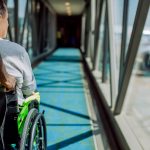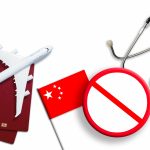
The U.S. Centers for Disease Control and Prevention is investigating an outbreak of gastrointestinal illness aboard a luxury cruise ship that sailed out of San Francisco on Wednesday. More than 150 people on the Queen Victoria, operated by Cunard Cruise Lines, have reported episodes of diarrhea and vomiting since the ship first set sail in early January, the CDC said in its investigation notice. A total of 125 passengers and 25 crew have fallen ill during the course of the voyage. Carrying a total 1,800 passengers and 970 crew members, the ship is next expected to dock in Honolulu, Hawaii, on Monday. The cause of the outbreak remains unclear, the CDC said, but Cunard told the agency that the ship has isolated ill passengers and crew and stepped up cleaning and disinfection efforts. The reported cases are totals for the entire voyage, the CDC noted. “Cunard confirms that a small number of guests had reported symptoms of gastrointestinal illness on board Queen Victoria,” Cunard told NBC News. “They immediately activated their enhanced health and safety protocols to ensure the well-being of all guests and crew on board. Measures have been effective,” Cunard added. The ship first left Germany on Jan. 9 and then departed Florida on Jan. 22, according to ship tracker Cruise Mapper, the Associated Press reported. The cruise ends in Australia next month.… read on > read on >



























-300x200.jpg)










